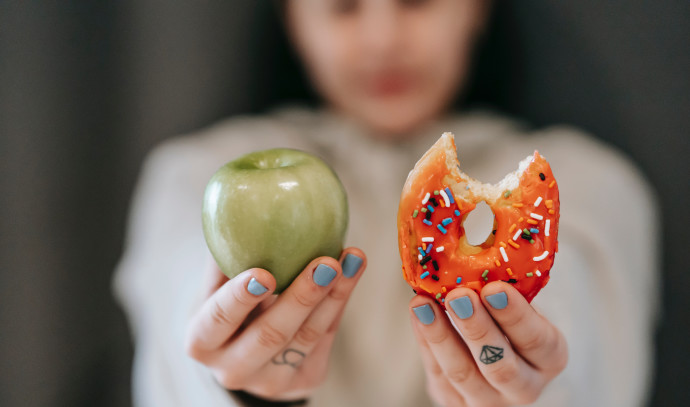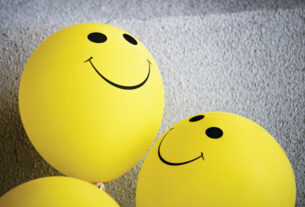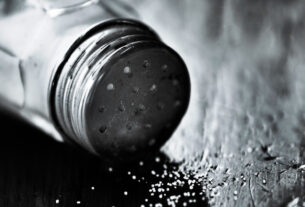The nature of habits is that we often start them without thinking at all. What begins in a one-time fashion continues to unfold from day to day and suddenly – without our choosing, we have adopted a habit that doesn’t benefit us. It could be something sweet after dinner, one too many cups of coffee during the work day, or a midnight snack that doesn’t contribute anything good to our body.
After a certain amount of time, these habits become part of us and then it becomes very difficult to break away from these patterns and becomes a real job. So, in honor of Passover and the spring season and the cleaning that comes with it, we spoke with Ortal Brobin-Chen, coordinator of naturopathy at Clalit Health Services, who brought us some tips on how to break bad habits and get rid of them.
Being dehydrated every day, all-day
Most of us don’t drink enough water. In the winter, it’s cold and you don’t feel like drinking water. In the summer, we spend all day in air-conditioned places and don’t feel the need to drink. Even in such situations, every cell in our body needs water. How much? The classic guideline is about two liters of water a day, or until the urine is clear.
If you like coffee, tea, or cola, and consume caffeine, you will experience frequent urination with relatively clear urine. Is that ok? No. Caffeine dehydrates us, encourages the need to urinate and actually causes more fluid loss than entering.
For every one cup of coffee that we drink, we should drink another two cups of water. When a person is dehydrated, they become more tired than usual, the skin is looser and weaker, they become confused and can’t function fully. Skip the habit.
Ortel’s tip: In the winter, prepare a thermos of caffeine and sugar-free herbal infusions. This is considered like drinking water. The thermos, which will keep the drink warm, will allow you to drink cup after cup without having to wait for the water to boil each time you make tea. In the summer, always carry a bottle of water, preferably a cold one. Add mint, lemon, or anything that will encourage you to drink more.
Coffee and baked goods
It’s time for the coffee ceremony. It might be in the morning, after lunch or some cups in between work. Automatically, the hand finds its way into the cookie jar next to the coffee machine or, in the best case, you’ll eat some dates and nuts. But wait, do you really want something sweet right now? Is this the moment of crisis?
We’re so used to that, “something small” with coffee, and we might eat it two to three times a day without even really needing or wanting it.
Thus, today’s “moment of crisis” will come and come again and then we find out, that we eat something sweet or carbohydrate-y again, which is added to many other moments of the day when we had no need at all, but we ate, because we drank. Wait, why, actually?
Eating together with drinking caffeine (and yes, even tea and green tea has caffeine) is not recommended. The caffeine reduces the absorption of minerals such as calcium and iron. Make a habit of it, the hot drink is a treat and a necessity in itself. Separate it completely from eating. Skip it!
Ortal’s tip: If later in the day you have a real need and desire for an energy shot, allow it to yourself and better prepare for it in advance with relatively nutritious alternatives such as dates and walnuts, a natural energy snack, fresh fruit, dark chocolate with a high percentage of cocoa solids or even that unhealthy cookie that you really can’t live without. Isn’t it true that reducing eating it to once a day instead of 3-4 times is already a huge improvement?
Worrying about everyone else before yourself
If you are in a plane and the oxygen masks fall down, contrary to your instinct, you should put it on before putting on your children. Why?
Because if they fall unconscious but you are functioning, you will be able to help them, which cannot happen the other way around. Now to the real world – how often have we found ourselves taking care of everyone, and who is in last place – we are. Skip the habit.
Sweet drinks
Soft drinks – as well as natural and non-natural juices, concentrates, added sugars and artificial sweeteners –
harm our health. Regularly adding natural or artificial sweeteners to our drinks accustoms our bodies to high levels of sweet taste, encouraging addiction and consuming more of it. At the same time, it causes high need for insulin and insulin resistance. All of these increase the risk of diabetes, obesity and morbidity. Skip!
Ortal’s tip: Make a decision that you don’t consume your sugars in drinks. Choose drinks without sugar or artificial sweeteners, additionally you can add herbs or lemon to the water to encourage you to drink. If you have a strong need for carbonated drinks, you can drink soda occasionally and gradually wean it off as well. Do you drink coffee? Remember that even if it is not sweetened, if it has milk or a vegetable substitute, it contains lactose or starches and actually already has sugars in it (sometimes, a lot!).
Reduce by a few grains of sugar in your coffee or tea every day until you can drink without the sweetness. About three weeks after weaning, if you accidentally add the sweetener to your drink, it will no longer taste good to you. Be careful not to replace the sugar with an artificial sweetener. They are also very unhealthy and increase the risk of type 2 diabetes.
Chewing gum
Chewing gum freshens the breath, helps us “put off” snacking and for some of us it is an integral part of everyday life. The constant chewing motion causes a chain of hormones to activate, making the body believe that it will soon receive food that needs to be digested and thus actually increases the feeling of hunger.
The long and sometimes aggressive activation of the chewing motion exerts a load on the TMJ joint until it is sometimes possible to dislocate the jaws or require joint surgery. If all this is not enough, they contain artificial sweeteners that increase the risk of developing type 2 diabetes. Skip it.
Ortal’s tip: Just throw it away. Stop buying gum. Freshen your breath by chewing fresh green leaves like mint, mint, parsley or basil, make sure to drink enough water to refresh your mouth and if you have no choice, occasionally use plant-based candies. Another little tip – don’t forget to also brush your tongue with a dedicated brush. You can also place a stainless steel spoon next to the toothbrush and tongue and “brush” the tongue with it. The stainless steel absorbs odors and will improve bad breath.
Being an “all or nothing” kind of person
Most people are able to maintain extreme discipline for a limited time and then have difficulty continuing it. What often happens is that once we get out of the extreme discipline, we do a 180-degree turn back to the negative habits. Did you eat too much at a holiday or gala dinner? It doesn’t mean that you “ruined everything” (just like one from one meal with a salad, you didn’t become a health guru) – if it does, you can and maybe should throw everything in the trash and eat whatever you feel like. Skip it.
Ortal’s tip: Realistic and achievable goals are the way to succeed in maintaining a healthy lifestyle for years. Always try to ask yourself if you chose the best one from the choices before you, when sometimes none of them are excellent.
Listen to your feelings of hunger and satiety and don’t ignore them. Have you deviated from good habits? The faster you get back into the habits you know are good for you, the easier it will be to balance. In most cases, when no illness is involved in the background, there is no absolute and extreme allowed and forbidden food.
So what will you ignore from now on? Start with at least one section and with the good feeling you can start clean and free. Happy Passover!




